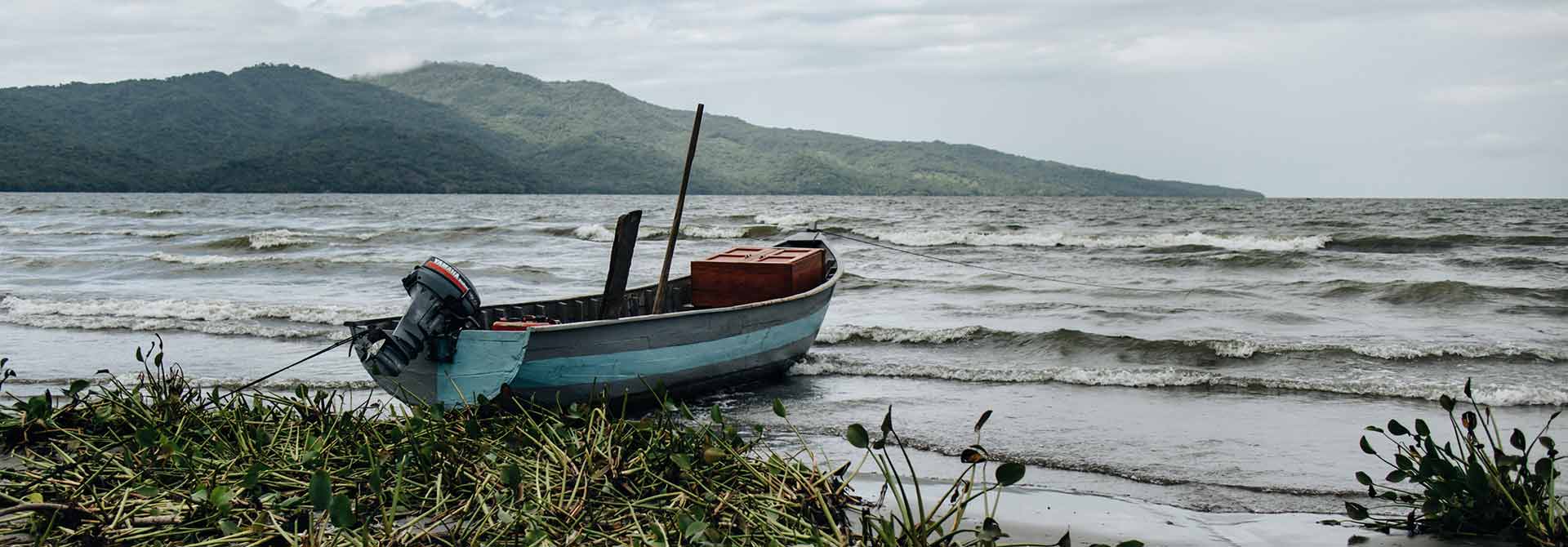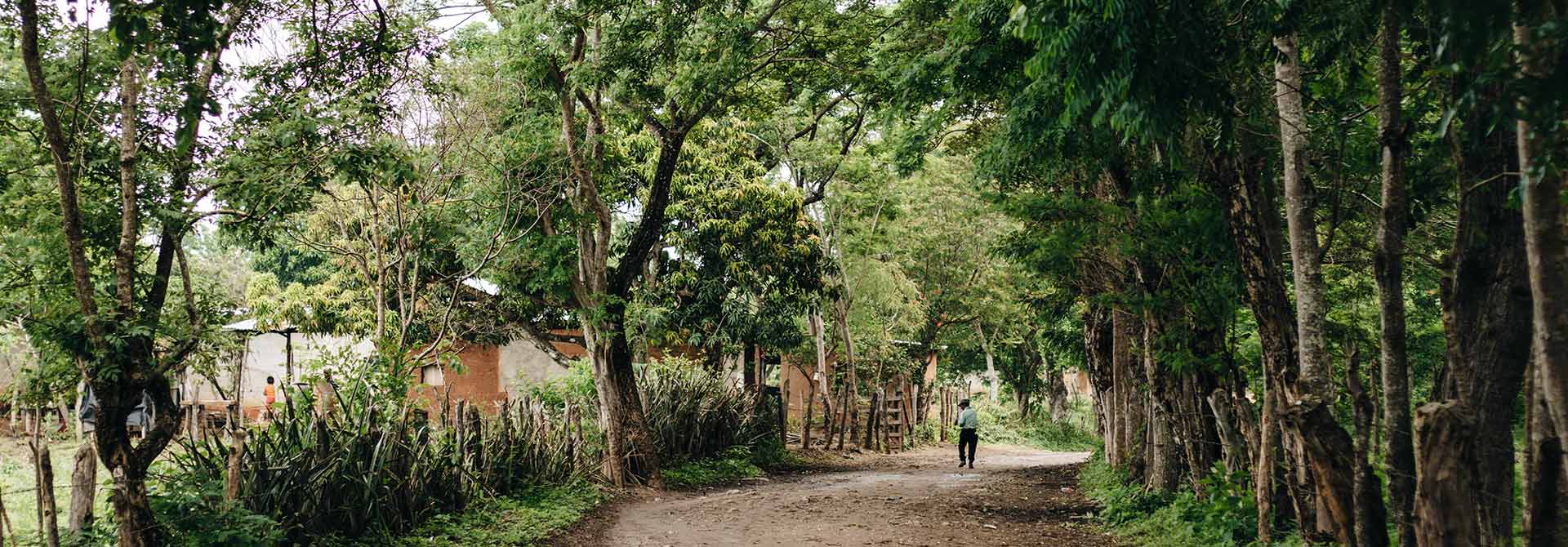Interview with Portland Chapter Board Member Linda Ganzini
We talked to Portland Chapter board member Linda Ganzini about her role in chairing the subcommittees on financial aid and the letter-writing campaign.
AMIGOS: Can you describe your relationship with AMIGOS and how you came to be involved in the Portland Chapter?
Linda: I remember the day my high-school-age daughter came home and told me about a presentation in her Spanish class about AMIGOS, and that she was going to do this program. I was really taken aback because she — bless her heart — is a fussy, fastidious kid. And she lived a cloistered life, at an all-girls Catholic high school, in a neighborhood and a city that we called “the bubble.”
She did not seem interested in changing the bubble until the day she came home from school and told me about AMIGOS. That’s how it all got started. In the Portland Chapter, there was a huge group of volunteers that year, I think over 40. I ended up getting elected as a parent leader for the year and helped all these young people get ready to travel to Latin America. My daughter was placed in Nicaragua. She still says it was the most difficult thing she’s ever done in her life.
When she came back and got off the plane, one of the first things she said to me was, “Mom, I’ve been living in a bubble.” She finally got it.
One of the things that she figured out in that experience was the issue of social and economic power. The people in the town she lived in had difficulties accessing clean water, exacerbated by the power dynamic between the owners of the wells and those without access. It was a real eye-opener.
Even before she left for Nicaragua, she was fundraising for her trip and had to sell a certain number of tulips and she got behind. She made a plan to sell in front of the local French bakery. On this day, it was typical Oregon weather, it was cold, it was wet, and she just dreaded it. I told her, “You know, you don’t have to do this program, but if you do, you have to do your share.” She left to sell the tulips and the weather was just awful. She came back way later than I thought she was going to with this huge grin on her face and she said, “Mom, I’m good at this. I’m going into business.”
Now, this was kind of funny because my husband and I are both physicians and are far from the business end of the spectrum, so it’s not like she was coming up with this idea for a career in business with encouragement from us. But she told this story about selling these tulips and how she realized she could engage people, she could, based on what they say, alter her pitch. The whole day she was getting better and better and better at selling tulips.
 Besides raising money, the fundraising component of AMIGOS is designed to give kids the confidence to go into a small Latin American town, engage its residents, tell the AMIGOS story, and collaborate on an idea. I still well up with tears as I think about what a transformational experience AMIGOS was for her.
Besides raising money, the fundraising component of AMIGOS is designed to give kids the confidence to go into a small Latin American town, engage its residents, tell the AMIGOS story, and collaborate on an idea. I still well up with tears as I think about what a transformational experience AMIGOS was for her.
Three years ago, when I was about to retire, I dropped by the Portland Chapter President’s house to pick up some tulips I ordered from the fundraiser. The year before I’d been sent an email asking if I wanted to receive a fundraising letter from a volunteer. I responded, “sure, I’ll take four letters.” And I only received two letters. I said to our President “Jenny, I signed up for four letters and I only got two. You guys gotta do better than that. It can’t possibly be because they didn’t need my money.” Jenny laughed and we talked about fundraising and I said, “you could do this and this and this”. Within a couple of weeks, I’d been elected to the board.
I started working on different ideas to engage alumni and their families through our Friends of AMIGOS program, which includes a list of over 400 mostly alums and their families. We made plans to engage them to raise money for financial aid. We had some big plans. Of course, then COVID hit, and everything went sideways. So now we are trying to build it back up. But, I think, “why do I do this?” When I was about to retire, everybody asked me what I was going to do next and I, tongue and cheek, would respond, “I’m going to solve inequality and climate change.”
I got involved in the Portland Chapter of AMIGOS, which addresses the inequality part of my goals–trying to find opportunities for students and families who could not afford the program. Much of that was reflecting on my own children’s life and how having an invested, financially secure set of parents really makes a difference in opportunities. And a lot of kids don’t have that. So maybe we could make AMIGOS possible for those students.
How does the Portland Chapter go about identifying or reaching out to students who can use that kind of extra support and how do you go about finding them in the community and getting the word out to them? What kind of support do you provide? What does that look like?
One thing we’ve done is start to develop a mentorship program. It’s really more of a support program. In the last two years, I’ve served as a support for volunteers whose families simply could not give them the kinds of assistance they needed to get all the fundraising and preparation completed. At times our volunteers can be phone insecure, transportation insecure, and computer insecure. When I supported the volunteers, I just used my car and my computer and my phone to help them get what they needed. I hope we can develop a program that does that for all the families who need functional support—that’s one of the things I’m working on now.
Just last week we instituted a waiver of application fees for anybody who applies for financial aid. And that’s now on our website. We also just changed to an early bird financial aid program to give families an earlier decision on financial aid so they can plan.
We are recruiting new board members and a couple of them have expressed strong interest in the financial aid committee. I think they will bring new ideas and perspectives. The whole idea is to try to give young people opportunities and make it a dignified experience for them.

Pivoting a little bit to talk more about chapters, what does local at AMIGOS mean to you? Either AMIGOS in Portland specifically, or AMIGOS having local roots in cities across the country in general, and what value do you see from the chapter network?
I think having local control in a local group allows for a lot of on-the-ground problem-solving for individual families. It allows the building of trust because–and we get feedback about this–they see we’re working really hard for them. We believe in the program because it benefited us or our children. We are able to build relationships that are beneficial for the students and their families.
Chapters provide individual support and help build trust. And chapters represent and reflect the community from which they come.
What kind of person or what kind of qualities do you look for in a board member candidate? What makes a person a good fit to join a local chapter board?
They have to play well with others! People who come with just one idea about what they want to do or how they want to do it— that’s a problem. The second thing is we are a working board and I’ve been on other working boards and sometimes potential board members come along and just say, “I’m an idea person.” Hey, we don’t just need ideas, we need you to actually do the work. They must dig in and do the work and be available. The third thing is understanding the program, but also, it’s helpful to have some board members who have experience in other kinds of similar programs.
The fourth is we need a specific set of skills. For example, it’s not good if no one on the board knows how to construct a budget. Finally, I think people also need to be ready to give both a certain amount of time during the year and then commit for a few years. We are building this institution, this knowledge, and if people are just churning through the board all the time, that’s not helpful. Luckily that has not been a problem in Portland.
Skills, commitment, and personality are the things that I think made a good board member.

You said that when you were retiring you were interested in tackling inequality. What is your motivation to support students in the Portland community and why is it important to provide that level of support?
I came into the world with this strong sense of fairness. I was always the kid in our family and in the neighborhood who was always saying, “that’s not fair.” Of course, when you’re saying it, when you’re six years old, it’s maybe a bit different. But I came with a sense of fairness and there’s all kinds of things I could do to try and address fairness, but this is one small way. I really think that working locally around fairness is what fits me. Fundamentally, I think it’s unfair that some kids can afford to participate in AMIGOS and others can’t when it’s such a potentially transformational experience. There are all kinds of other ways I could use my time to address fairness. This one just fits for here and now.
There’s something to be said for, “what’s the best way to get involved? Whatever way you want to and can.”
Addressing inequality requires doing things differently in tens of thousands of ways. I’m just choosing one of those 10,000 ways. I have no conviction that it’s the most important or impactful way, it’s just the way that works for me in my life.
Yeah. I think with really big challenges, just taking action is better than being perfect.
That’s right. I say that frequently. Perfect is the enemy of the good.

